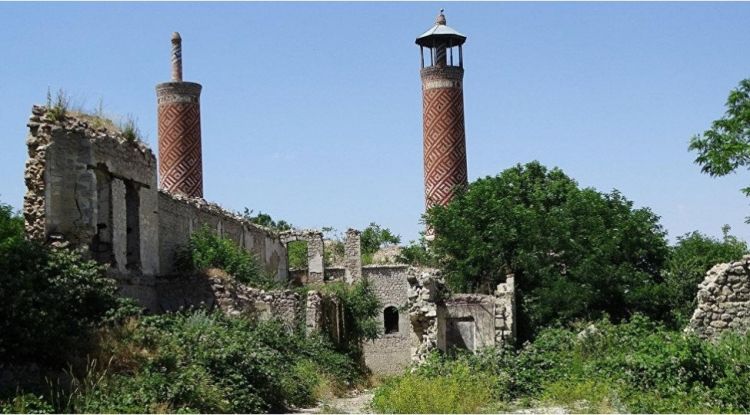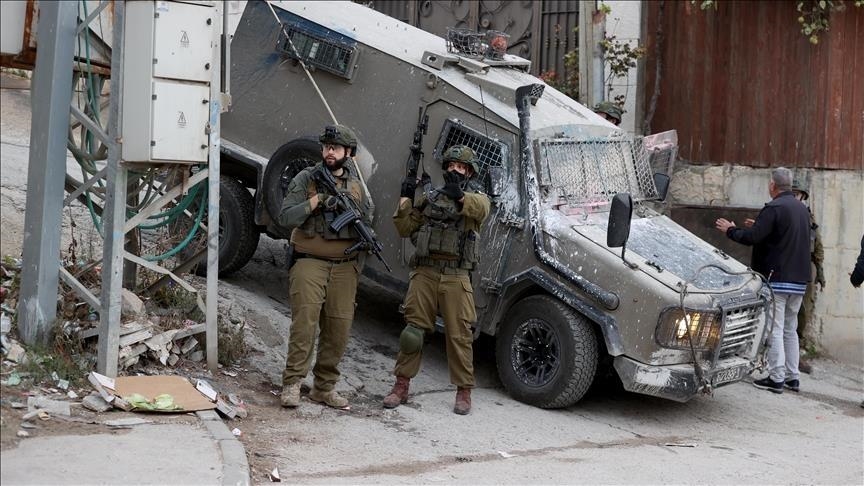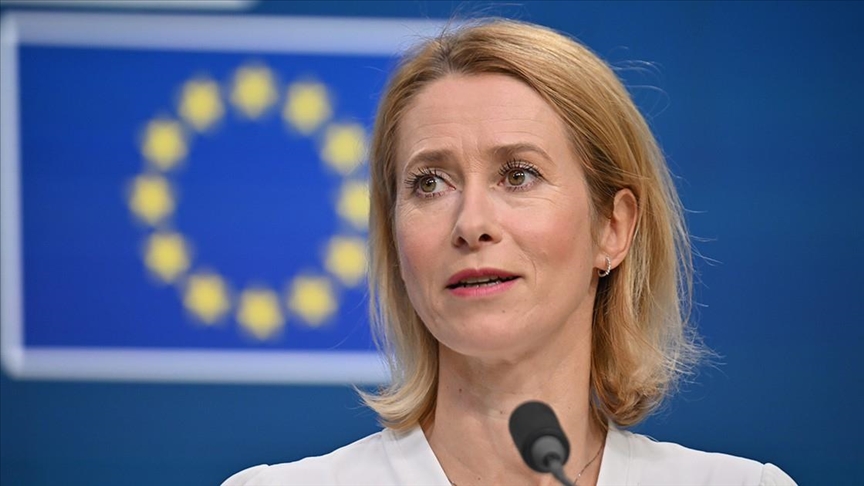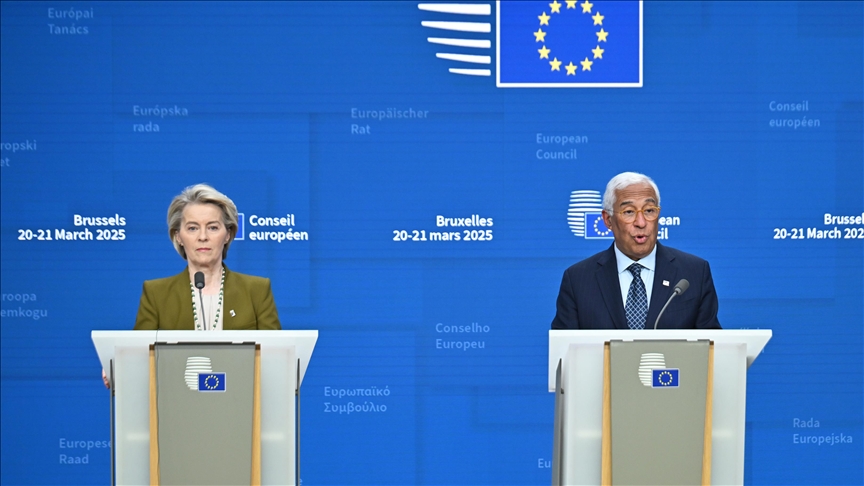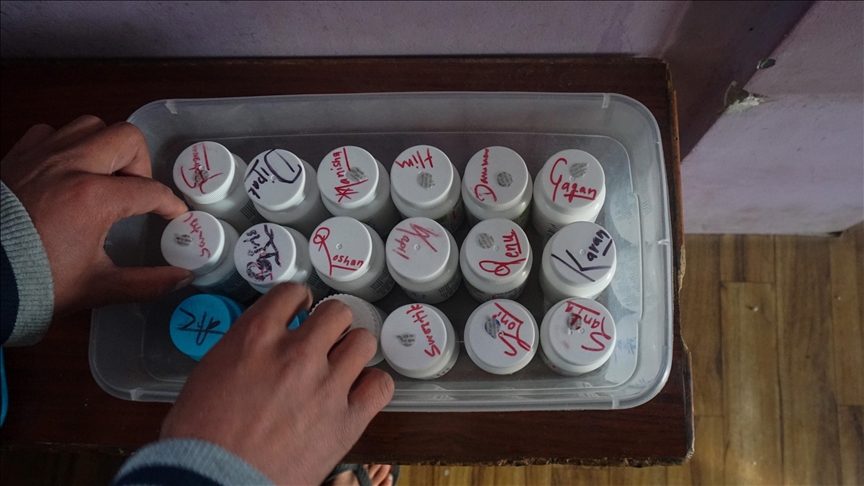As a result of successful counter-offensive operations in the period of six weeks of Patriotic War, glorious Azerbaijan Army defeated Armenian occupying forces by liberating four districts and some parts of Nagorno-Karabakh, including the city of Shusha, and at the same time its victory ended Armenian occupation in whole Karabakh. However, there is an unfortunate thing still remains that during Armenian occupation all residential areas of liberated regions as well as cultural and religious monuments in these regions were subjected to vandalism. Even Armenians withdrawing from Kalbajar are burning everything, including natural resources not hand over to their local owners.
Eurasia Diary conducted an interview with Patrick Walsh, Irish expert on the history of Caucasus and Ottoman Empire regarding Armenian brutal and sacrilegious behavior against historical and cultural heritage of other nations in Karabakh.

Dr Patrick Walsh is a one of the few western historians who shared his criticism on Armenian claims of territories and the issue of genocide in the history.
He is an author of numerous books, a political analyst and a teacher of history and politics in his home land of Ireland.
- Mr Patrick, Armenian occupation finally ended in Karabakh. The territorial integrity of Azerbaijan has been restored. But, unfortunately, Armenian vandalism hasn’t vanished and still remains in our soil. The cities, settlements and villages of liberated districts - Fuzuli, Jabrayil, Zangilan and Aghdam were razed to the ground. All historical monuments and cultural centers in these areas as well as in the city of Shusha were entirely destroyed. Even our cemeteries were desecrated. As historian, please tell us, what reasons forced Armenians to commit such barbarity against culture and history of Azerbaijani people?
- I would presume that this is a part of what is known as a “scorched earth” policy. Defeated armies often do this to deny anything that might be of use to the enemy. Settlers/colonists are also noted for destroying their occupation infrastructure when they are overcome by local majorities which they can no longer keep down. The settler mentality is always a racist one of superiority in which the most humble colonist believes himself a higher form of civilization than those he is destined to replace on a territory. When his world is shattered by a resurgence of those he dispossesses he takes all that he sees as his work, no matter how mundane – even toilet bowls! Of course, the destruction of settlements, houses, schools and livestock is environmental crime. Most of the settlers “achievements” are, in fact, the result of theft from the precious resources of the local environment, which he has illegally grabbed from the original inhabitants. So this is also a war crime and reparations should be justly demanded from the former occupiers. By signing the armistice the Armenian government has formally accepted its responsibilities as participant in this criminality, removing the pretense of a free-standing separatist pseudo-state being the culprits.
- Do you think that historians from all parts of the world should be invited to visit liberated territories and witness Armenia’s policy on the annihilation of cultural and religious heritage of other nations?
- Undoubtedly, the facts need to be documented by international experts visiting the scenes. When I visited Quba a number of years ago what impressed me most was the work the Azerbaijan Democratic Republic did to document the evidence about the March massacres of 1918. This evidence marked it out from the wild and exaggerated claims that are often seen from the Armenian side that have little evidence to support them. Western historians also need to understand this is not a religious conflict, except perhaps from the Armenian side who try to pretend there is an anti-Christian agenda. Anyone who has taken any time to study the conflict knows this is a false assertion designed to muster up support in Europe and the U.S.
- Do you think that the annihilation of all Azerbaijani religious and cultural monuments in the city of Shusha is brutal crime against Islamic world?
- Well, I can’t really speak for the Islamic world, being a Catholic myself. But I would be pretty certain that Muslims would be incensed about the disgraceful treatment of their places of worship. I am thinking of the mosques turned into pig-sties and other sacrilegious provocations. Really all decent and civilized people, of whatever religious persuasion, should see such things as barbarism and deeply hurtful and insulting. I’m sure that is what the Armenians intended, of course. Really this kind of behaviour reflects very badly on the perpetrators.
- You know very well that Churches in Karabakh, which had been built in the period of mediaeval ages, belong to Caucasian Albanians. It is one of them located in Kalbajar district of Azerbaijan. However, Armenians have always tried to falsify the history of Albanian Churches by changing their inscriptions and descriptions. Unfortunately, there is miserable situation that international community still considers these Churches belong to Armenians. Please tell us, what works should our historians carry out to expose Armenian falsification and set out serious affirmation on Albanian Churches in Karabakh?
- I think that a good deal of historical research needs to be done to explore this area and bring the facts to a wider audience. I am somewhat familiar with the arguments but would like to discover more myself. I would like to say one thing, however, quite apart from the final historical truth of the matter. I believe it is to the credit of Azerbaijanis that they embrace a Christian heritage as Muslims. It shows a spirit of diversity and inclusiveness entirely lacking in Armenian nationalism. The Armenians have a zero-sum attitude to virtually everything – territory, culture, religion, settlement. It is entirely theirs or no ones. There is no notion of a shared past that makes for respect for the great civilizations and cultures of the world. It is all about them, and nobody else counts, it seems.
- Do you see possibility for the cultural co-existence of Azerbaijani and Armenian communities in Nagorno-Karabakh in future?
- That is a most difficult question. Without it there can be no lasting peace and stability in the region as a whole and also, in its absence, Armenian nationalism with its narrow, self-seeking and indeed, self-destructive, orientation will persist until it manages to wipe out the Armenian people completely. For the present, there are some advantages in Russian peacekeepers quarantining the rump of the Armenian occupation. What we have in Karabakh, is a conflict between two nationalities. Finding an accommodation between what are effectively two nations sharing the same territory involves discovering a way these historic peoples can share this land in peaceful co-existence. The previous Armenian regime attempted to solve the nationalities issue by removing one of them entirely. It failed and nothing of the sort should be attempted again. For the next 5 years, at least, the Armenian population of two-thirds of the former Nagorno Karabakh will be isolated from their Azerbaijani neighbours. It would be very unfortunate if they would remain a ringed off homogeneous enclave within the Azerbaijani state, permanently guarded by Russian forces. That would maintain a “siege mentality” which would certainly not be conducive to the building of future good relations between the two peoples of Karabakh, or between Armenia and Azerbaijan. The lessons of Northern Ireland, where I live, suggests there needs to be development of mutual trust and interest within Karabakh itself, as well as between Armenia and Azerbaijan to address the totality of relations in the conflict. An historic and comprehensive agreement with functional governmental arrangements for reconciliation, within an all-embracing settlement, is imperative for an enduring peace.
Interviewed by Yunis Abdullayev

